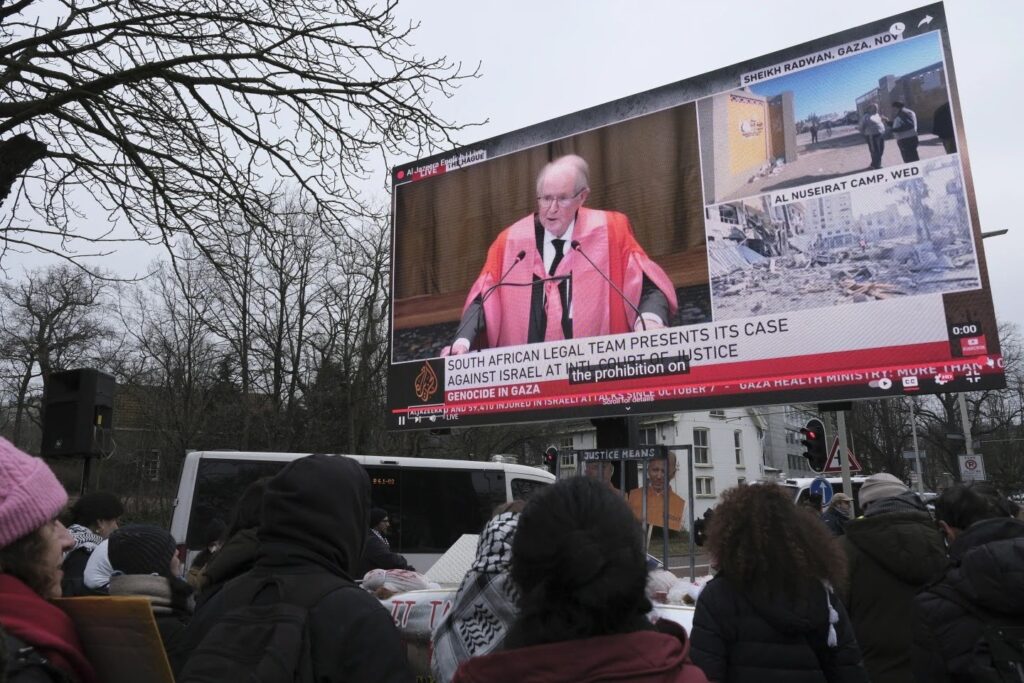In a historic election over the weekend, the ruling African National Congress (ANC), once led by Nelson Mandela, lost its absolute majority for the first time since apartheid ended 30 years ago.
The blow to the ANC follows its outrageous claims against Israel at the International Court of Justice (ICJ) that it is committing genocide in Gaza and its threats to arrest its citizens who serve in the IDF.
In February 2024, MP Kenneth Meshoe attacked the ANC and predicted that the party will be cursed for cursing Israel. “I want to remind the ANC today that Isaiah 54:17 says that no weapon that is formed against Israel shall prosper and every tongue that rises against it in judgment will be condemned,” he said. “ANC, you have gone too far and your judgment is imminent. When the G-d of Abraham, Isaac, and Jacob said that He will bless those who bless Israel and curse those who curse her, He was not joking but meant every word He said. You have invited the curse on yourself and you’re going to get it!”
Last month, a group of 160 lawyers said that South Africa was allegedly bribed by Iran to file the false claims against Israel at the ICJ in exchange for the Islamic Republic covering the party’s debts. The lawyers sent a letter to US Secretary of State Antony Blinken saying that the ANC experienced a sudden and unexplained financial turnaround after it filed the case against Israel and demanded that an inquiry be launched under the anti-corruption Magnitsky Act.
The ANC’s Foreign Minister Naledi Pandor flew to Tehran shortly after October 7th and according to Pandor, discussed “Israeli apartheid.” Additionally, ANC leaders hosted Hamas leaders on a visit to South Africa in December.
The ANC will now likely need to look for a coalition partner or partners to remain in the government and reelect President Cyril Ramaphosa for a second and final term. Parliament must meet to elect the South African president within 14 days after the election result is declared.
“The way to rescue South Africa is to break the ANC’s majority and we have done that,” said John Steenhuisen, the leader of the main opposition Democratic Alliance party.
Julius Malema, the leader of the Economic Freedom Fighters opposition party, said that the ANC’s “entitlement of being the sole dominant party” was over.
The way forward could be complicated for Africa’s most advanced economy, and there’s no coalition on the table yet. The three main opposition parties and many more smaller ones were in the mix as the bargaining begins.
“We can talk to anybody and everybody,” ANC Chairman Gwede Mantashe said on national broadcaster SABC.
Steenhuisen’s Democratic Alliance received around 21% of the vote. The new MK Party of former President Jacob Zuma, who has turned against the ANC he once led, was third with just over 14% of the vote in the first election it has contested. The Economic Freedom Fighters was fourth with just over 9%.
DA has been the most critical opposition party for years and doesn’t share the ANC’s pro-Russia and pro-China foreign policy. South Africa takes over the presidency of the Group of 20 industrialized and emerging-market nations next year.
An ANC-DA coalition “would be a marriage of two drunk people in Las Vegas. It will never work,” Gayton McKenzie, the leader of the smaller Patriotic Alliance party, told South African media.
DA says an ANC-MK-EFF agreement would be a “doomsday coalition” given MK and EFF are made up of former ANC figures and would pursue the same failed policies.
The three opposition parties had a combined share that was bigger than the ANC, but they are highly unlikely to all work together. The DA was also part of a preelection agreement with other smaller parties to potentially form a coalition.
Amid it all, there was no sense of celebrations from ordinary South Africans, but rather the realization that a rocky political road was ahead. The Daily Maverick newspaper had a South African scratching his head with the words: “What Does It Mean For Our Future?” on its front page. The Die Burger newspaper led with an image of about a dozen political parties’ logos going into a meat grinder.
South African opposition parties were united in one thing — something had to change in the country of 62 million, which is Africa’s most developed but also one of the most unequal in the world.
The official unemployment rate is 32% and the poverty disproportionately affects Black people, who make up 80% of the population and have been the core of the ANC’s support for years. The violent crime rate is also high.
The ANC has seen a steady decline in its support over the last 20 years, but by around three to five percentage points each election. It dropped 17 percentage points this time from the 57.5% it won in 2019.
(YWN Israel Desk – Jerusalem & AP)












2 Responses
The votes ANC lost went to parties that are more radical and more anti-Israel than ANC.
I was educated many decades ago:-
1) Always support 🇮🇱 & מדינת-ישראל
2) Always observe יום-העצמאות
3) Always observe יום-ירושלים
It is unfortunate that RSA government didn’t receive this excellent advice & education